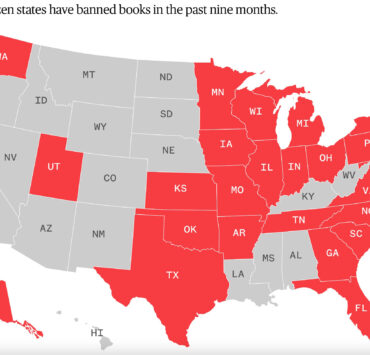GARY LEE
WASHINGTON, D.C. – Leaders of four of the five Oklahoma-based so-called Five Civilized Tribes reported to a United States Senate panel last week that they have made little to no advances in granting Freedmen citizenship in their tribal nations.
The Senate Committee on Indian Affairs held a public hearing on Freedmen issues on Wednesday, July 28, at the Capitol. They called on representatives of the Five Tribes to give status updates on their fulfillment of the 1866 treaty. The treaty ordered the tribes to make provisions to give tribal rights to African Americans who had come with them from the southern states to Indian Territory in the early 1800s as enslaved people.
None of the representatives of the Creek, Choctaw, Chickasaw and Seminole reported that they were planning to introduce any significant measures to fulfill their obligations under the treaty. Freedmen from each of the four tribes have made legal attempts to gain citizenship but have been rebuffed.
In contrast, Chuck Hoskins, chief of the Cherokee Nation, testified that his tribe’s leadership decision five years ago to grant citizenship to Cherokee Freedman was proceeding well. In 2017, Judge Thomas F. Hogan of the U.S. District Court for the District of Columbia ruled in favor of the Freedmen in Cherokee Nation v. Nash. Per Hogan’s opinion, the 1866 treaty guarantees that extant descendants of Cherokee Freedmen shall have “all the rights of native Cherokees,” including the right to citizenship in the Cherokee Nation.
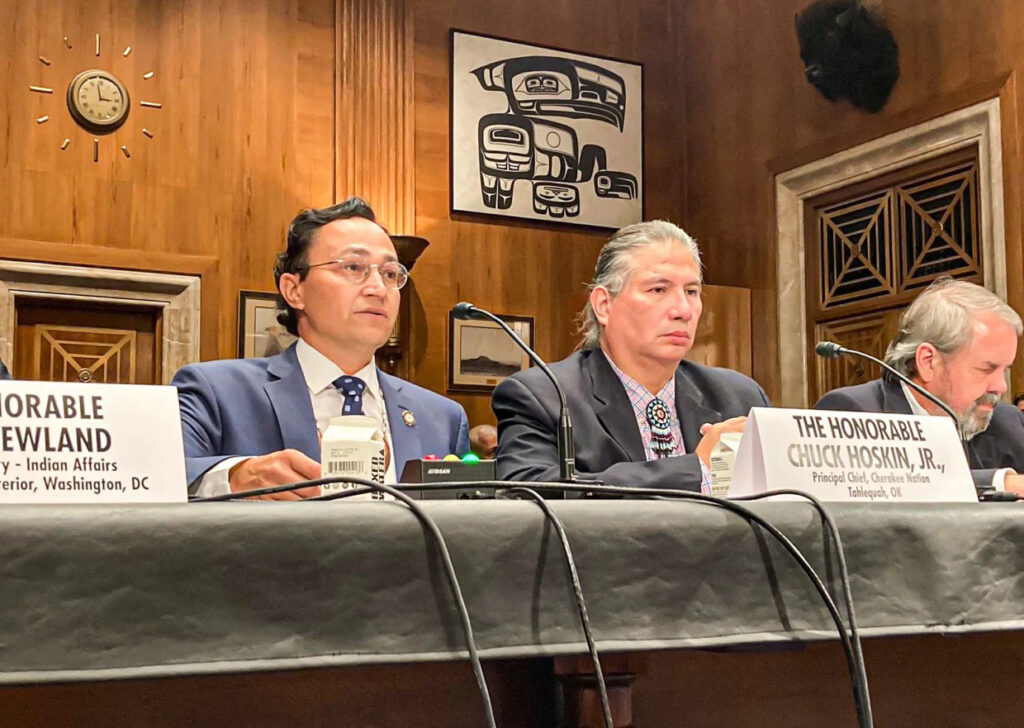
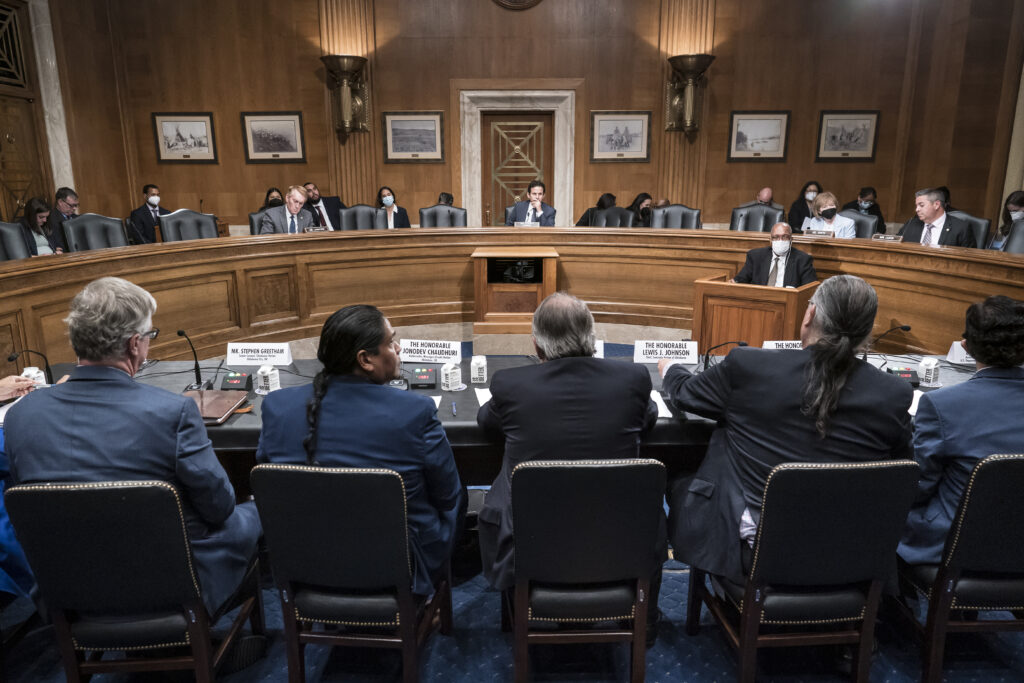
Cherokees on a path of reconciliation
“We immediately began accepting and processing citizenship requests from Freedmen descendants,” Hoskins told the Senate panel. “To date, we have approved and processed approximately 11,834 citizenship requests.
“We are on a path of reconciliation, but we need to do more than acknowledge the legal principle of equality. We must seek to embrace the spirit of equality each day. Because no nation can truly prosper when any of its citizens are victims of discrimination,” he said.
Although all Five Tribes are bound by the 1866 treaty to integrate Blacks into their tribes, the leaders of the other tribes made clear that they are not inclined to follow the lead of the Cherokee Nation in granting Freedmen tribal membership.
Marilyn Vann, President of the Descendants of Freedman of the Five Civilized Tribes and a member of the Cherokee Nation, provided the senators a detailed report on the failed attempts of Freedman to gain citizenship in the Creek, Chickasaw, Chocta,w and Seminole tribes. In each case, the tribal leaders have rebuffed or resisted the attempts.
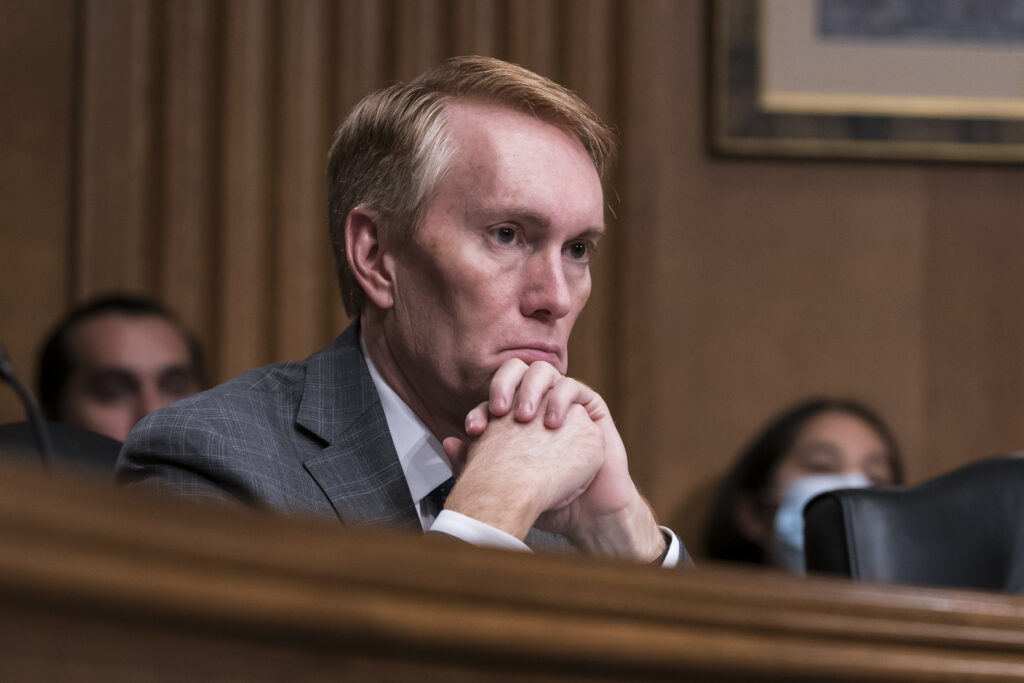
Call for federal action
Vann recommended that the federal government take steps to intervene on behalf of the Freedmen. Among other actions, she suggested the following action items:
- The Department of Interior can register the Freedmen’s descendants, giving those who provide sufficient proof a descendancy of a Dawes enrollee letter asserting the person is a treaty Indian who qualifies for federal services.
- Government departments such as the Indian health service can receive directions that the freedmen with the descendance letters qualify for specific programs such as Indian Health Service, tribal schools, Indian health service scholarships, or preference for jobs in the Department of Interior or the Indian Health Service. The BIA can confirm with the school, hospital, etc. that the freedmen descendant is qualified as a descendant of a Dawes enrollee/treaty Indian.
- For those services run by the tribal governments through compacts or 638 contracts, we request that the federal government set aside funds specifically for freedmen use who are not being served by their tribal governments either due to tribal council actions which block the freedmen, such as in the Seminole nation or disenrollment in violation of the treaty such as in the Creek nation. We ask that HUD or other agencies initially run these programs for freedmen use. The legislation should also allow freedmen bands, freedmen-organized tribal towns, or freedmen organizations to receive funds to run the programs – contract or compact with the agencies.
“We request Field Hearings to be held in Oklahoma by members and staff of the Senate Committee on Indian Affairs so that more voices of the freedmen people can be heard,” she told the senators.
“I stress that the suggestions above do not equate to equal tribal citizenship. “But this would be a start whereby the U.S. government is doing its part to live up to its treaty obligation.”
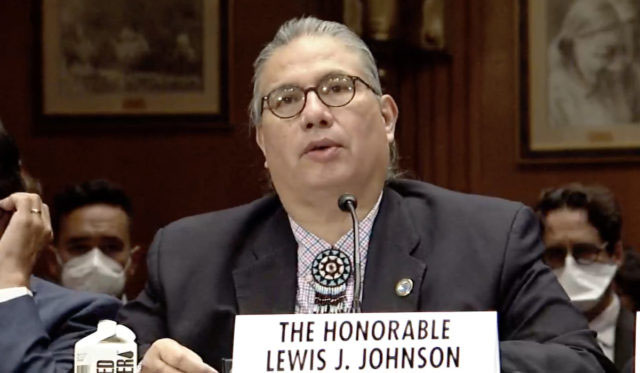
A difficult conversation
Sen. Brian Schatz (D-Hawai‘i), committee chairman, explained his reason for holding the hearing.
“For the first time in the history of the United States Senate, (the Choctaw, Chickasaw, Cherokee, Muscogee Creek, and Seminole Nations), Freedmen descendants, and the administration have an opportunity to present their views on the 1866 Treaties for the record,” Schatz said.
“I understand and acknowledge that this is a difficult conversation because this issue, at its core, involves injustices perpetrated by the United States government more than a century ago against both Native Americans and African Americans. It is emotionally charged for many, and for a good reason – yearslong litigation and disagreement over the citizenship status of Freedmen descendants among the Five Treaty Tribes has divided communities – and even divided individual families. But disagreements cannot get resolved in silence.”
Rep. Maxine Waters (D-California), a longtime champion of Freedmen rights, also testified. She held a hearing in July 2021 seeking assurance that on Freedmen descendants were not denied receiving funding from the Native American Housing and Self-Determination Reauthorization Act received by the Five Tribes.
“Currently, there are tribes that are implementing federally funded programs in a way that actively discriminates against descendants of Freedmen in direct violation of treaty obligations,” she said. “Congress has every right to ensure that federal funding is implemented in compliance with all relevant obligations.
“We must stand by the rights promised to Freedmen and the treaties that guaranteed those rights over a century ago and hold these tribes accountable.
This pandemic has made clear that the ongoing discrimination of the Freedmen’s descendants can literally mean the difference between life and death for descendants of Freedmen. I urge the distinguished Members of this Committee: We must honor our word as a nation and uphold, as honorable people, the obligations of these treaties.”
The Oklahoman reported that Bryan Newland, who leads the Bureau of Indian Affairs, said that if Congress wanted to extend federal benefits to Freedman descendants regardless of whether they are enrolled in a tribe, his agency isn’t set up to figure out who would be eligible or not. Its programs typically use tribal enrollment as the baseline requirement, he said.










